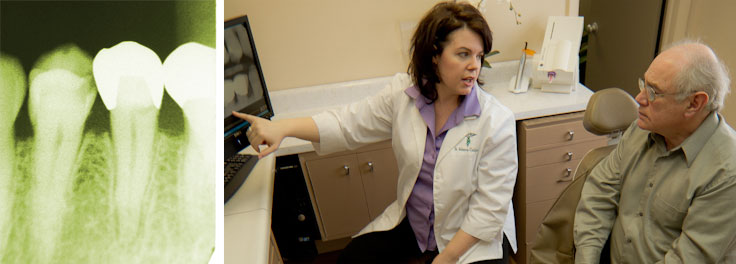The third party
No one really thinks about it, but the arrangement between patient, doctor and insurance company is an awkward one. For starters, the arrangement is primarily between the patient (or subscriber) and the insurance company. Subscribers (or their employers) pay the insurance company a set amount of money and the insurance company covers a predetermined level of care in the event such care is required. That’s the contracted deal. Dental offices are on the outside of that arrangement.
A while back, we had a patient with several kids, and she liked to bring them into the office for their cleanings all at once. While the kids were getting their cleanings, this parent would go to the front desk and schedule the next giant block of appointments. At the time, she was under the impression that cleanings were covered once every six months, so she scheduled the next appointments six months from that day. Except… the insurance company covered cleanings once every six months and a day. In other words, if you had an appointment on May 6, the next appointment that would be covered wouldn’t be Nov. 6 but Nov. 7. So, more than six months later, this parent found out her kids’ cleanings weren’t covered. She asked us for help, and we appealed the claim. The appeal was rejected. We called the insurance company and tried to work it out. The insurance representative put all responsibility on the subscriber and said the parent should have known about the policy. We pushed back, “it’s just one day.” Finally, the insurance representative told us, in short, to butt out. This was between the insurance company and its subscriber. The dental office was a third party in this transaction, and we had no standing in this dispute. Good-bye.
The problem with this arrangement is that as more people make health care decisions based on what they can afford or choose to pay (which in itself carries a lot of risk — a simple filling could blow up into a root canal if left untreated,) patients rely on dental offices, the third party, to translate what exactly insurance plans will cover. Some plans are clearer than others, but even then it’s hard to pin down the exact price. The only way to know for sure is to get a pre-estimate, which is not always possible in the event of an emergency.
The best strategy, in addition to brushing and flossing, is to visit your dental office regularly, listen to preventative recommendations and communicate concerns. With time and open lines of communication, we can minimize the amount of unforeseen events.

